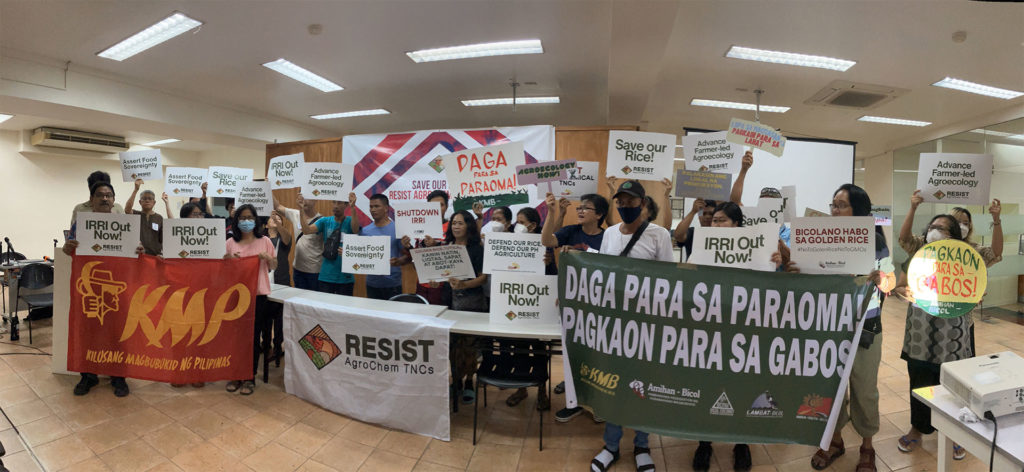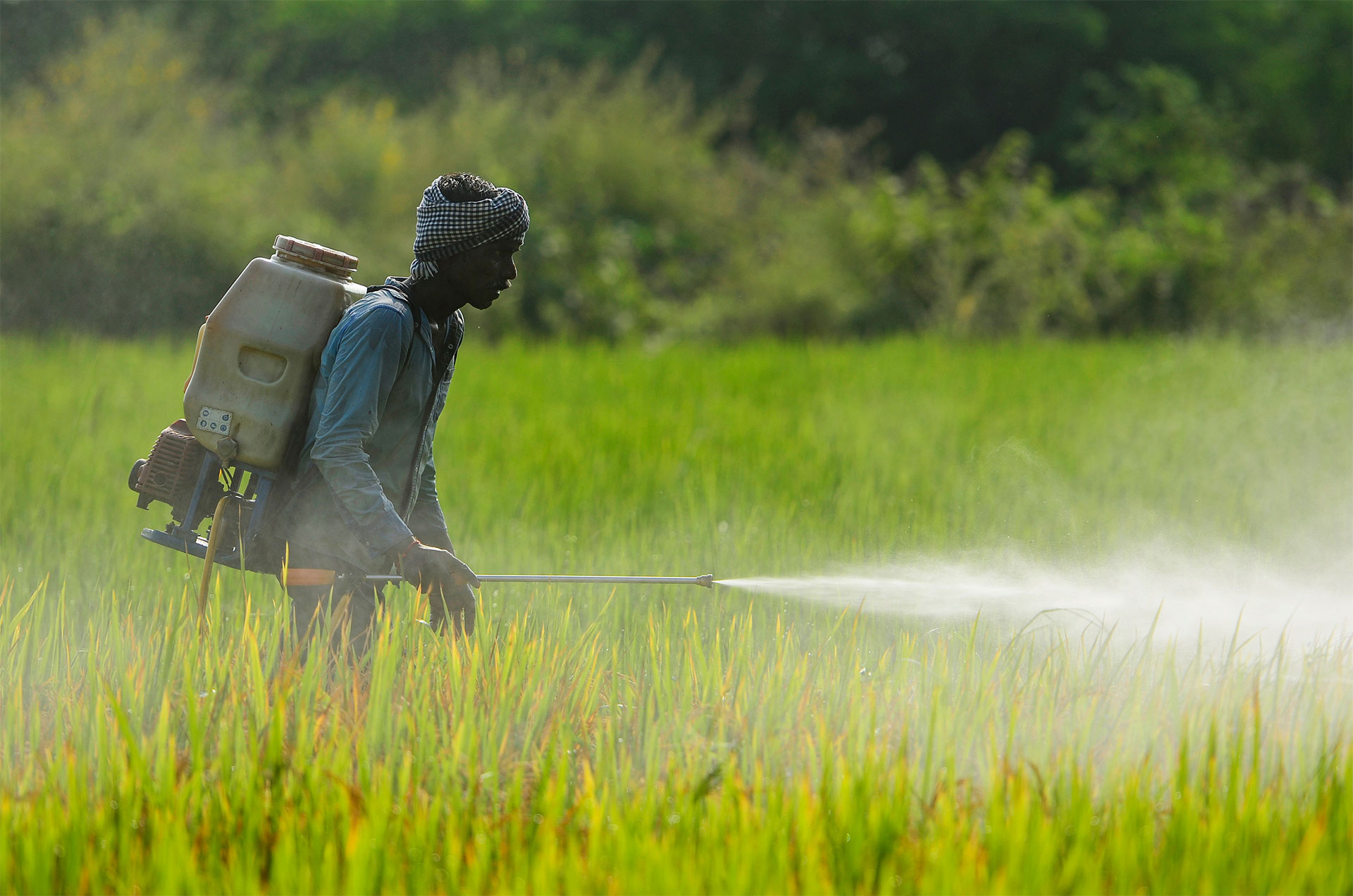Corporate efforts to control rice-based food systems are intensifying to the detriment of small farmers’ livelihoods and the food security of those who depend on the staple crop. Environmental and climate catastrophes are also bound to worsen with the likely further increase of pesticide use in rice farming tied to big corporations’ push for techno-fixes.
PAN Asia Pacific (PANAP) issued the warning as the 6th International Rice Congress (IRC) convenes in Manila from October 16 to 19, led by the International Rice Research Institute (IRRI). The IRC, which gathers industry players and policymakers and excludes rice farmers, is replete with corporate agenda, with agrochemical and seed giant Bayer as a primary sponsor of the event.
The Malaysia-based regional network cited the IRC’s focus on fast-tracking genetic and digital technologies as a supposed response to climate change. Bayer, which controls almost a quarter of the global seed market, has immensely profited from commercial rice varieties that they market as climate resilient. At the IRC’s opening, Bayer announced the introduction of its Direct-Seeded Rice (DSR) system to the Philippines. Bayer’s DSR system, which claims to reduce water use by up to 40% and greenhouse gas emissions by up to 45 percent, aims to replace traditional paddy cultivation. It uses patented Bayer rice hybrids and is being introduced with a “new rice herbicide to ensure a successful and durable weed management program.” Bayer piloted its DSR program in India—where it targets the conversion of one million hectares—and is expanding into the Philippines and other countries in the Asia Pacific.
The IRC also aims to accelerate “genomics and gene editing approaches,” with the latter increasingly favored by TNCs to elude biosafety regulations. Bayer, which accounts for 16% of the global agrochemical market, has genetically engineered seed varieties to tolerate increased use of its agrochemicals. While not explicitly designed for agrochemical tolerance, Golden Rice, the world’s first genetically modified (GM) rice approved for commercial propagation in the Philippines, has been developed using some of Bayer’s proprietary technology together with IRRI and other agrochemical transnational corporations (TNCs), and pose unprecedented risks to human health and biodiversity. The IRC, which has “Bringing the missing nutrition into rice” in its agenda, is expected to boost support for Golden Rice, even as its commercial propagation is being opposed by farmers, consumers, and scientists.
The monopoly Bayer and other TNCs exert over commercial and GM seeds, including rice, disempowers small farmers and aggravates their indebtedness and poverty due to the exorbitant cost of inputs. About 400 million people engaged in growing rice worldwide are poor and undernourished people, a trend that will undoubtedly worsen if the IRC’s nefarious agenda is not opposed, PANAP stressed. TNC control over resources and inputs also contributes to the unaffordability of rice at the expense of poor consumers. In Asia, as low as 4% of rice’s consumer price goes to farmers, with the rest going to the corporate rice value chain, including TNCs and their local distributors of commercial seeds and agrochemicals.

Additionally, PANAP warned that the greater use of pesticides and other agrochemicals in rice farming with commercial hybrid and GM varieties will accelerate the triple planetary crisis of climate, biodiversity, and pollution. As PAN North America (PANNA) noted in its recent report, pesticides contribute to climate change throughout their lifecycle via manufacturing, packaging, transportation, application, and through environmental degradation and disposal. Yet the industry uses platforms like the IRC to peddle the deception that climate change could be mitigated by the use of toxic agrochemicals and commercial seed varieties that have actually decimated climate-resilient traditional and farmer-bred rice varieties and sustainable farming practices.
PANAP renewed its call to advance people’s food sovereignty and people-led agroecology to address the urgent and long-term issues undermining rice production and the rights and welfare of rice farmers. It pointed out that farmers have developed many traditional and local rice varieties that are climate resilient, environmentally sustainable, productive, and nutritious. A conducive policy environment must be put in place to allow farmer-led sustainable rice farming to thrive, and for consumers to have access to safe, adequate, affordable, and nutritious rice.
To counter the narratives of IRRI and agrochemical and seed TNCs, peasant movements and advocates in the Philippines today held the People’s Conference Against Corporate Onslaught on Rice and Food, with farmers from all over the country in attendance. In the said conference, rice farmers shared successes in agroecological farming practices and underscored the need to protect rice biodiversity, implement land reform, and reverse neoliberal policies as part of their assertion of food sovereignty and farmer-led solutions to the climate crisis.
Save Our Rice! Resist Agrochemical TNCs!
###








Discussion about this post